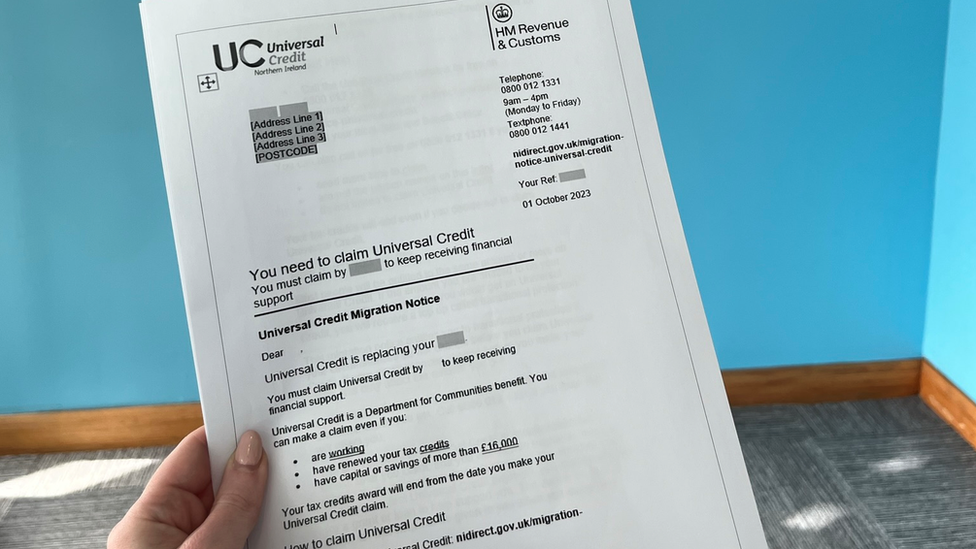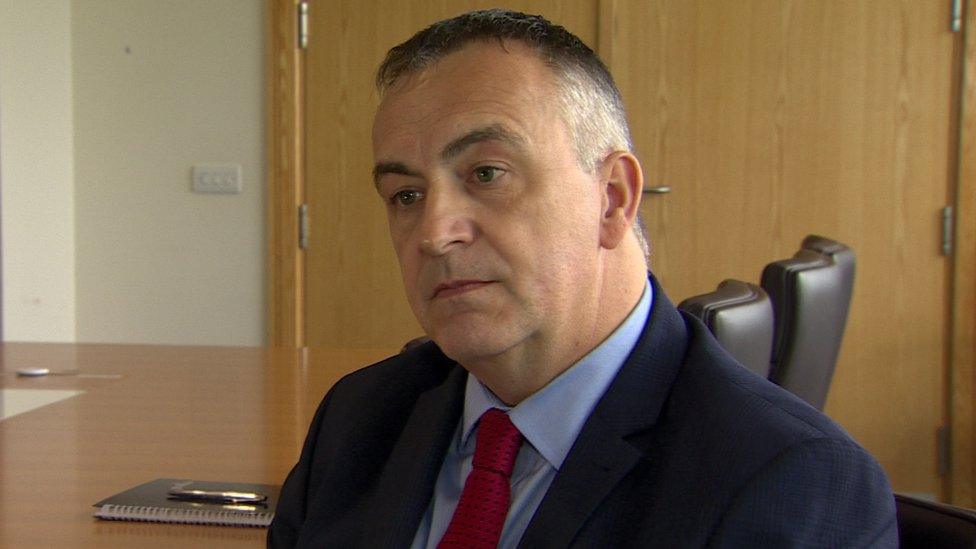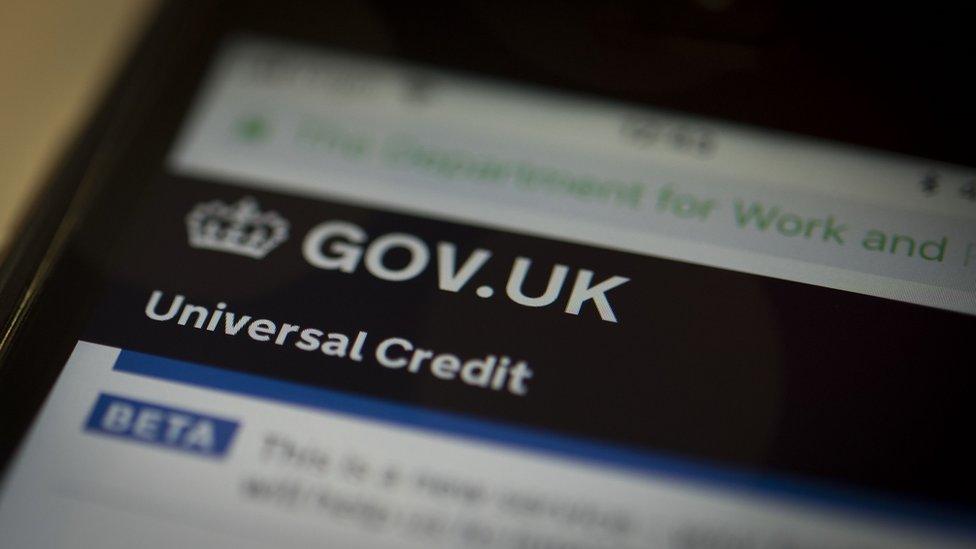Universal Credit: Thousands in NI to move to new benefit from Monday
- Published

The Department of Communities will write to 71,000 households affected by the move
Tens of thousands of Northern Ireland households will start being moved on to Universal Credit (UC) from Monday.
Universal Credit is a single benefit payment for working-age people. which is replacing a range of different benefits in an attempt to make the system simpler.
The Department for Communities is going to write to 71,000 affected households.
These households will then have three months to make their claim or they will lose out.
Universal Credit has been in place in Northern Ireland for new claimants since September 2017. It is now rolling out further and replacing six benefits that are coming to an end:
Child Tax Credits
Working Tax Credits
Income Support
Income-based Jobseeker's Allowance
Income-related Employment and Support Allowance (ESA)
housing benefit (rental)
The roll out will start with those households in receipt of tax credits only from Monday.
However the migration of claimants on ESA (except for those receiving Child Tax Credit) has been pushed back to 2028.
That will impact those in receipt of income-related ESA only and those in receipt of income-related ESA and Housing Benefit.
Households will be able to make their claims after receiving letters known as migration notices from the Department for Communities.
Those entitled to UC will receive their first payment approximately five weeks after submitting a claim and will receive payments twice a month thereafter.
Northern Ireland is the only part of the UK with a fund to help people during this window, known as the "five-week wait".
The deputy secretary of work and health at the Department for Communities, Paddy Rooney, said: "Anyone entitled to UC may be able to claim extra financial support to help with essential costs while waiting on their first payment, including a Universal Credit Contingency Fund grant payment or an advance loan."

Paddy Rooney, from the Department for Communities, said staff are being redeployed to handle the move
In addition, anyone who would be worse off under the new system will be entitled to a top-up known as "transitional protection", external - as long as they apply in time and their circumstances do not change in the meantime.
"We deliberately chose the live date of 16 October to avoid claims closing in and around the Christmas period.
"If you don't make that claim, your benefit will stop so we have deliberately chosen October to avoid that cliff edge," he added.
It comes after the Department for Communities warned cuts to its budget and staff vacancies could risk slowing down benefits delivery.
"The budget situation for us is quite challenging, our absolute priority is that we complete the move to UC to the timeline that has been set.
"We can't go beyond that otherwise it lands on us in terms of cost.
"We are starting to redeploy staff into Universal Credit to ensure that we have the right resources to enable that journey to be as protected as we possibly can."
Universal Credit issues for farms
Concerns have been raised about the impact this move will have on self-employed people, including farmers, who will have to record their incomes monthly instead of annually.
Head of policy at Advice NI, Kevin Higgins, said: "The Universal Credit system requires the self-employed to report their cash-in and cash-out business figures monthly, corresponding to their Universal Credit monthly assessment period, and, straightaway, this may present a challenge for self-employed people."
This could also have a big impact on farming households due to the seasonal natures of many payments, such as livestock sales.
Mr Higgins' colleague Matt Cole told Good Morning Ulster on BBC Radio Ulster that he was also worried about people who do not have the necessary digital skills to make and maintain their applications online.
Gillian Reid, from Rural Support, said many will find monthly reporting a challenge and could need additional help at an additional cost at a time they are struggling with the cost of living.
"The very nature of some of the farms - (they) will maybe sell a lot of cattle in one month and then that's it for most of the year," she added.
"Plus we have single farm payment coming down the line. Those costs are earmarked for the business, not available to the individual."
For anyone in need of support during the process, the Move to UC Delivery Team can be contacted on freephone 0800 012 1331.
Related topics
- Published22 June 2022

- Published29 July 2022
